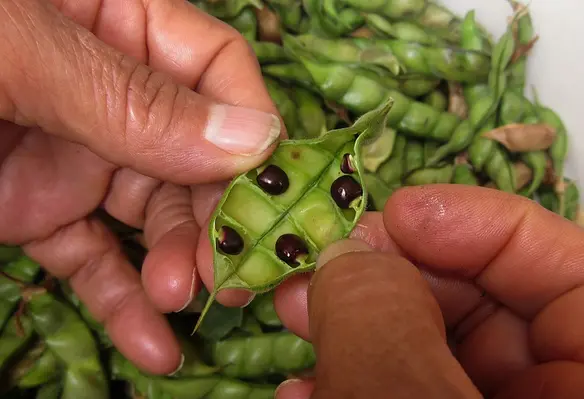The International Crops Research Institute for the Semi-Arid Tropics (ICRISAT) has introduced a first-of-its-kind pigeonpea speed breeding protocol, thereby significantly boosting food security in Asia and Africa
Pigeonpea, known for its nutritional value and versatility, is crucial for food security and soil health globally. Traditionally, pigeonpea breeding however, can take up to thirteen years. With the new protocol's emphasis on material breeding and control over factors like photoperiod, temperature, and humidity, the breeding cycle can now be shortened to just two to four years, as opposed to the conventional period of seven years.
Historically, a number of factors including growth cycle length and sensitivity to day length have hindered breeding efforts, resulting in the global release of only around 250 varieties over a span of six decades. The new speed breeding protocol helps address challenges by enabling researchers to develop climate-resilient, nutritionally superior and higher-yielding pigeonpea varieties at an unprecedented pace.
Dr Arvind Padhee, IAS, Principal Secretary, Department of Agriculture and Farmers' Empowerment, Government of Odisha, acknowledged the protocol's potential to rapidly develop climate-resilient pigeonpea varieties, highlighting the vital support from the Government of Odisha. Moreover, Dr Sean Mayes, Director of ICRISAT’s Global Research Programme – Accelerated Crop Improvement, said that the new protocol underscored the Institute’s commitment to food and nutrition security in the drylands.
India's increasing demand for pigeonpea, projected to necessitate the import of 1.2 million tonnes by March 2024, underscores the timeliness of this open-access protocol. It offers a blueprint for rapid, efficient pigeonpea variety development and contributes significantly to the goal of achieveing self-sufficiency in pulse production.
"This pigeonpea speed breeding protocol represents a significant advancement for major pigeonpea-producing regions, paving the way for self-reliance in pulse production and meeting the dietary necessities of nations such as India, Myanmar, Kenya, Tanzania and Mozambique," said director general of ICRISAT, Dr Jacqueline Hughes. "This achievement is particularly timely, coinciding with World Pulses Day celebrations, highlighting the global significance of pulses."




